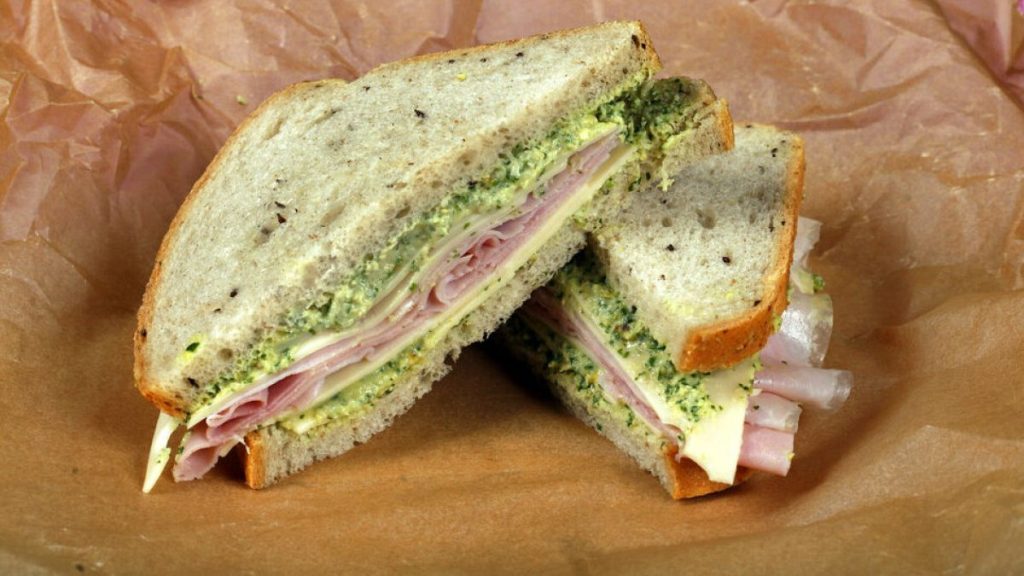Kemi Badenoch’s seemingly innocuous comment about not being a “sandwich person” ignited a surprising firestorm in British politics, diverting attention from weightier matters like the economy and international relations to the humble sandwich. Badenoch, the new Conservative Party leader, dismissed sandwiches as “not a real food” in an interview, preferring steaks and multitasking meals while working. This sparked a swift and calculated response from Prime Minister Keir Starmer, who defended the sandwich as a “great British institution” and highlighted its significant contribution to the UK economy. This seemingly trivial exchange underscores the constant jockeying for public attention and the strategic use of even minor issues to shape political narratives.
Starmer’s embrace of the sandwich can be interpreted as a shrewd political maneuver. With his approval ratings languishing and facing criticism over various issues, including donations and tax hikes, the Prime Minister seized the opportunity to portray himself as relatable and in touch with the everyday lives of Britons. By championing the sandwich, a lunchtime staple for millions, he sought to connect with the public on a simple, shared experience and subtly contrast his approach with Badenoch’s perceived elitism. The timing of Badenoch’s remarks, following farmer protests over inheritance tax plans, allowed Starmer to further imply that the Conservative leader was out of touch with the concerns of ordinary people.
The public reaction to the “sandwichgate” saga was swift and largely in favor of Starmer’s pro-sandwich stance. Social media buzzed with commentary, and the debate spilled over onto television and radio, highlighting the surprising resonance of this seemingly trivial issue. Jim Winship, director of the British Sandwich & Food To Go Association, weighed in, emphasizing the cultural and economic significance of the sandwich, further solidifying its position as a national icon. This widespread engagement suggests that the public, perhaps fatigued by the constant barrage of serious political news, welcomed a lighter, more relatable topic of discussion.
The “sandwichgate” incident also evokes memories of a previous food-related political gaffe: Ed Miliband’s awkward encounter with a bacon sandwich in 2014. The photograph of Miliband struggling to eat the sandwich became a symbol of his perceived awkwardness and was widely mocked in the media. The incident, resurrected in the wake of Badenoch’s comments, serves as a reminder of how seemingly minor incidents can be amplified and weaponized in the political arena, sometimes with lasting consequences. Miliband himself, now the UK’s energy secretary, injected humor into the situation by acknowledging the “sandwich content” and expressing a desire for cross-party consensus on the matter.
This episode reveals the complex interplay of politics, public perception, and the strategic use of seemingly trivial issues. Badenoch’s dismissive remarks about sandwiches, while perhaps unintentional, provided Starmer with an opportunity to present himself as a champion of the everyday Briton and subtly criticize his opponent. The widespread public reaction, fueled by social media and traditional media outlets, amplified the issue far beyond its initial scope. The “sandwichgate” saga ultimately serves as a microcosm of the broader political landscape, where even the smallest details can be leveraged to shape narratives and influence public opinion.
The “sandwichgate” affair, though seemingly trivial, offers a glimpse into the dynamics of contemporary British politics. Starmer’s strategic embrace of the sandwich, juxtaposed with Badenoch’s dismissiveness, reflects the ongoing battle for public approval and the calculated use of relatable issues to connect with voters. The incident also highlights the power of social media and traditional media in amplifying seemingly minor events and shaping public discourse. Finally, the re-emergence of the Ed Miliband bacon sandwich photo serves as a cautionary tale about the enduring impact of seemingly insignificant moments in the political arena. While the “sandwichgate” debate may eventually fade, it leaves behind a reminder of the intricate and often surprising ways in which political narratives are constructed and consumed in the modern era.














